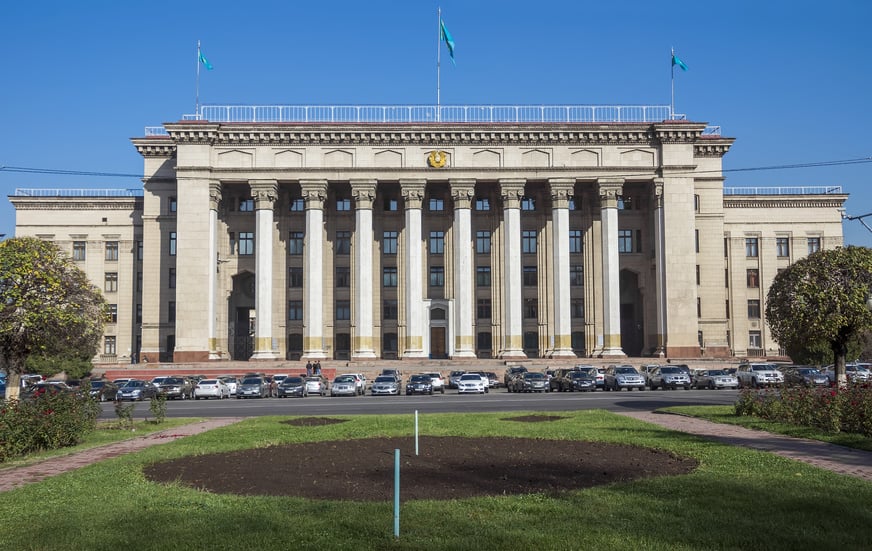The President of Uzbekistan, Shavkat Mirziyoyev has signed two decrees intended to liberalize the country’s export and import regime:
- the Foreign Trade Decree1 which will become effective 1 December 2017, and
- the Export-Import Contract Decree,2 which became effective on 10 November 2017 (together, the Decrees).
The Decrees represent a further step towards liberalization of Uzbekistan’s economy following the President’s earlier measures to improve the country’s currency regime.3
The principal provisions of the Decrees are summarized below.
Foreign Trade Decree
Relief from Payment Security Requirement
Uzbek companies wishing to export goods and services previously were required to obtain from the purchaser one of several types of security for payment of the purchase price: an advance payment, a letter of credit, a bank guarantee or an export insurance policy. Failure to obtain such security would subject the Uzbek exporter to investigation by Uzbek authorities under the applicable currency monitoring regulations, resulting in sanctions for any breaches discovered.4
The Foreign Trade Decree eliminates the payment security requirement for most types of goods and services, provided that the Uzbek exporter has no overdue receivables under previous export operations. The payment security requirement, however, continues to apply to the export of fresh fruits and vegetables and certain other products listed in the Foreign Trade Decree.
Export without an Export Contract
The Foreign Trade Decree states that Uzbek companies will be entitled to export goods (except fresh produce) and services without an export contract, on the basis of an invoice, provided that the following conditions are met: (i) the export operation is reflected in the Unified Electronic System5 for currency control purposes, and (ii) 100% prepayment is received in the Uzbek bank account of the exporter. The previous legislation required a contract for all export operations.
Unification of Currency Repatriation Period
Like most countries of the former Soviet Union, Uzbekistan requires exporters to ensure that proceeds from their export operations be received in Uzbekistan within a certain period of time. Such time period was variable and ranged from 60 days to 180 days, depending on the circumstances of the export operation.
The Foreign Trade Decree, while retaining the requirement that exporters must ensure that the export proceeds are repatriated to Uzbekistan, abolishes the variable time periods for repatriation and instead provides for a unified, 120-day term for all export operations, with limited exceptions.
Following expiration of the 120-day term an exporter will be deemed to have overdue receivables in which case it may be subject to financial sanctions (generally ranging from 10% to 70% of the export proceeds that were not repatriated to Uzbekistan).
The Foreign Trade Decree clarifies that the 120-day period will be suspended in case of force-majeure events. Also, if the exporter receives compensation for any loss under an insurance policy, the amount of overdue receivables will be reduced by the amount of compensation for purposes of calculating the financial sanctions on the exporter.
Other Relief for Exporters and Importers
The Foreign Trade Decree also provides for the following relief and exemptions in respect of export and import operations:
- re-export of goods previously imported into Uzbekistan under the “temporary import” regime no longer requires permission from the Uzbek customs authorities;
- importers are no longer obligated to submit to the customs authorities an export cargo customs declaration in order to confirm the customs value of goods imported into Uzbekistan with customs exemptions and benefits; and
- export customs clearance of products (except types of fresh produce indicated in the decree) may be carried out without obtaining a certificate on payments from the Unified Electronic System; similarly,no certificate from the Unified Electronic System is required for customs clearance of products exported based upon an invoice, without an export contract (see Export without an Export Contract above).
Export-Import Contract Decree
The Export-Import Contract Decree states that licensing of export and import of certain products (listed in the decree) should be carried out by the Cabinet of Ministers of Uzbekistan. Previously, the Ministry of Foreign Trade licensed such operations.
Under the decree, the Ministry of Foreign Trade will be responsible for registration (not licensing) of export contracts (except contracts made on a stock exchange) (a) made pursuant to the decision of the Government of Uzbekistan or intergovernmental treaties, and (b) for goods and services indicated in the decree.
In addition, the decree authorizes the State Committee for Investments to carry out an examination of certain import contracts financed out of the proceeds of the state budget or state-controlled companies.



